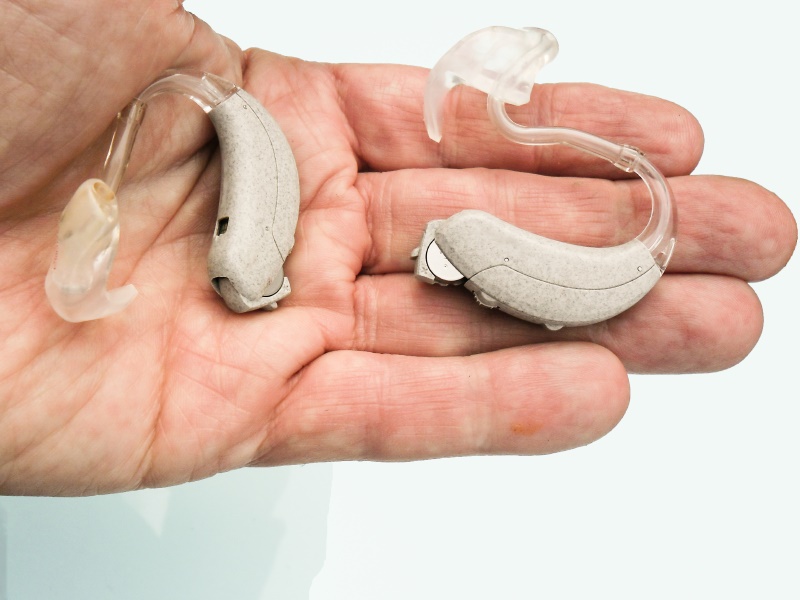
To help keep your hearing aids functioning properly for years to come, you need to learn about proper care and maintenance. And although it may feel like an additional burden, with the right system your hearing aid care will come to be effortless and automatic.
The secret is creating effective habits.
If you integrate your hearing aid care into your everyday and nightly routines, after a while it won’t feel like any additional work at all.
Below are some tips for the daily care of your hearing aids (which your hearing professional will also review with you):
Clean your hearing aids on a daily basis – Make an effort to incorporate your hearing aid cleansing into your nightly routine, so it becomes as automatic as brushing your teeth. Daily cleaning is essential because daily hearing aid cleansing can thwart the build-up of earwax, dirt, and dust into the various parts of the hearing aid, which can lead to distorted sound with time.
You’ll want to clean your hearing aid with a smooth, dry cloth, while averting any fluids that could destroy the hearing aid electronics. Talk with your hearing instrument specialist for specialized guidance on cleaning each model of hearing aid.
You may also prefer to consider investing in a hearing aid sanitizer, which uses ultraviolet light to safely and thoroughly kill harmful pathogens. Hearing aid cleaning kits are also available with all of the instruments you’ll require to safely and securely clean the device without causing harm to the electronics.
Always check the batteries – Hearing aid batteries should always be tested and replaced frequently to assure peak hearing aid operation. Consider using a battery tester each morning to assure you have adequate power for the remainder of the day, and carry a spare set of batteries with you.
At night, when your hearing aids are not in use, turn them off and store them in a cool, dry spot with the battery door open.
Store your hearing aids in a secure place – With respect to storage, you’ll want to remember three things:
- Keep the hearing aids away from moisture. This means that storing your hearing aids in the bathroom is probably a bad idea.
- Try to avoid subjecting the hearing aids—and hearing aid batteries—to extremes in temperature. You’ll want to store your hearing aids in a cool, dry place.
- Avoid storing your hearing aids out in the open, where they can become damaged.
We recommend keeping your hearing aids in a case or drying kit inside the drawer of a bedroom side-table. This will protect the hearing aids from dampness, temperature extremes, and damage from being knocked off the table.
Also, remember to take out your hearing aids prior to showering, swimming, or using a hair dryer or hair spray.
Maintain ear hygiene – Even though earwax has many useful qualities, including protection and lubrication of the ear canal, it can cause severe damage to your hearing aids. As it gets lodged within the hearing aid hardware, sound can become distorted.
Make sure you’re keeping up appropriate ear hygiene, and if you experience increased earwax, consider booking a consultation with a professional.
Carefully insert your hearing aids – While inserting your hearing aids, lean over a table or soft surface in the event that the hearing aids fall. Hearing aids contain delicate electronics, so a fall on a hard surface could cause significant damage.
Even with careful cleaning and maintenance, after a while the hearing aid will call for more detailed cleaning or repair.
To ensure that you continue to yield the best sound possible, we advise having your hearing aids professionally cleaned by a hearing instrument specialist at a minimum two times per year.
Hearing care professionals will render a deep cleaning, a tune-up, and will sometimes replace parts. Staying on top of this regular maintenance will increase the life of your hearing aids and will assure that you get the best sound.